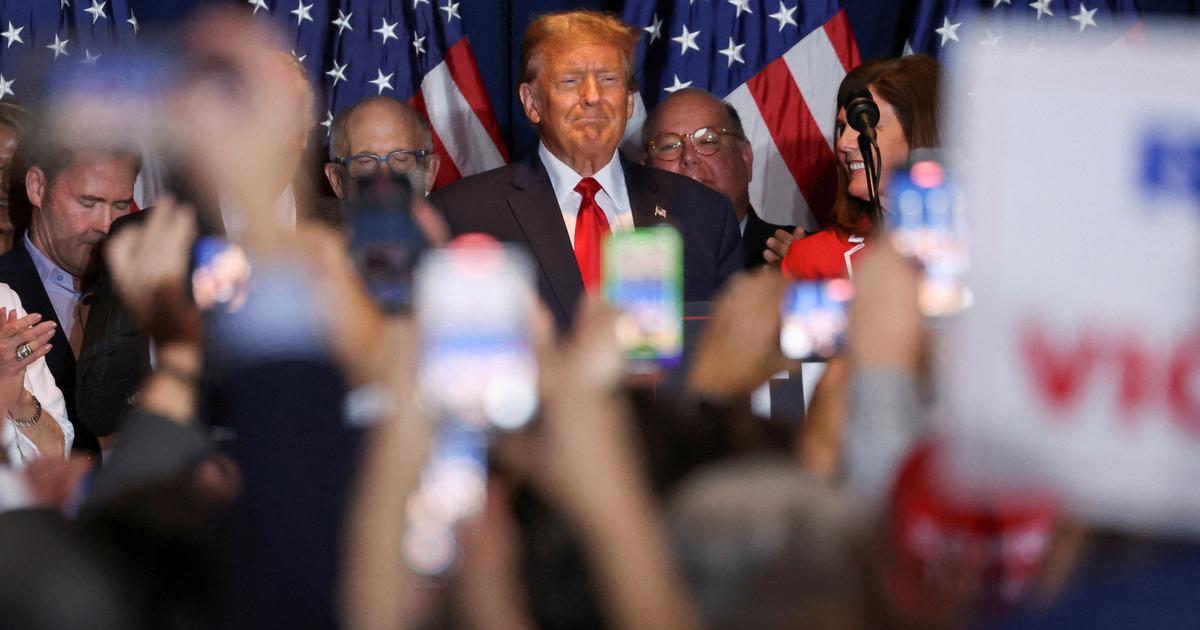He was once the hero of his country: Klaus Johannis, Romania's German-born president, came to power five years ago after a spectacular protest election. Many voters hoped for a better Romania from him: constitutional, citizen-friendly, less corrupt.
Now, at the end of his first term, most of his followers are disappointed. Because: Johannis has fulfilled virtually none of his election promises. But for lack of alternatives, the 60-year-old will probably be re-elected.
This Sunday, the first round of the presidential election will take place in Romania. Among all fourteen candidates Johannis is far ahead:
- Polls see him at 40 to 45 percent.
- That he gets more than 50 percent in the first attempt, but is considered unlikely.
- It is unclear who could make it to the second round - prospects include Dan Barna, the candidate of the liberal alternative party "Union Rettet Rumänien" (USR).
Johannis could at most endanger his victory himself: he did not pursue a real election campaign. That he does not participate in debates with other candidates, causes displeasure. Overall, voters will go to the polls without enthusiasm this time around.
Johannis stages himself as an active president - he never was
The fact that Johannis has such a good chance of a second term in office has been helped involuntarily by his political opponents - the until recently reigning alliance of nationalist turning communists and right-wing populist liberals.
It has devastated three governments over the past two-and-a-half years and maneuvered the country into a disastrous state. The main project of the coalition was a major reform of the judiciary, which noticeably weakened the fight against corruption. A side effect: through amnesties that were tailored to politicians, thousands of offenders were released prematurely. The number of violent crimes has increased significantly since then.
After several spectacular murders in recent months, including a 15-year-old girl and two foresters, the country now feels that state institutions are incapable or unwilling to guarantee citizens' safety because of their corruption. Johannis has picked up on this mood over the past few months and attacked the government hard. He staged himself as the active president, whom he was not until then.
Many promises, hardly any results
Johannis wanted to create a "well-done Romania" once - that was the slogan of his 2014 election. His promises:
- sustainable governance,
- a better political culture,
- an end to political corruption.
Much of this he had implemented as mayor in the Transylvanian Sibiu. As head of state in a semi-presidential system with limited internal political powers, he would have needed stable political conditions and a well-disposed, determined executive to tackle his reform plans - neither had existed for the past five years.
Trademark: silence and passivity
But Johannis disappointed above all because he did not make use of his actual possibilities of intervention.
- as a dance against the executive,
- as the initiator of public debates,
- in dialogue with state institutions and civil organizations
- or in foreign policy, in which he has great powers.
His trademarks quickly became silence and passivity. Johannis watched predominantly as the nominally social-liberal government majority dismantled the rule of law.
In order to avoid the risk of dismissal, in July 2018 he signed the coalition-demanded dismissal of the Chief of the Anti-Corruption Agency DNA, Laura Codruta Kövesi. He did not campaign for better public control of the powerful and highly controversial Romanian intelligence services.
"A normal Romania"
Although itself the target of nationalist agitation, he gave sometimes demands of nationalists, in order not to appear "non-Romanian". Personally, he is considered an integer, but he sat out affairs for his declaration of assets and a property acquired unlawfully.
In terms of foreign policy, Romania has remained strongly Euro-Atlantic in recent years, albeit largely in the role of a supporter - even though it is the largest country in Southeastern Europe. Even in the Romanian-speaking neighbor Moldova, where many citizens also have a Romanian passport, Johannis showed little interest.
Meanwhile, Romania's president has become more modest in campaign promises: "A normal Romania," is Johannis' slogan now. Most Romanians, chronic fatalists in their own country anyway, have given up the belief in this normalcy thirty years after the fall of the Ceausescu dictatorship.





